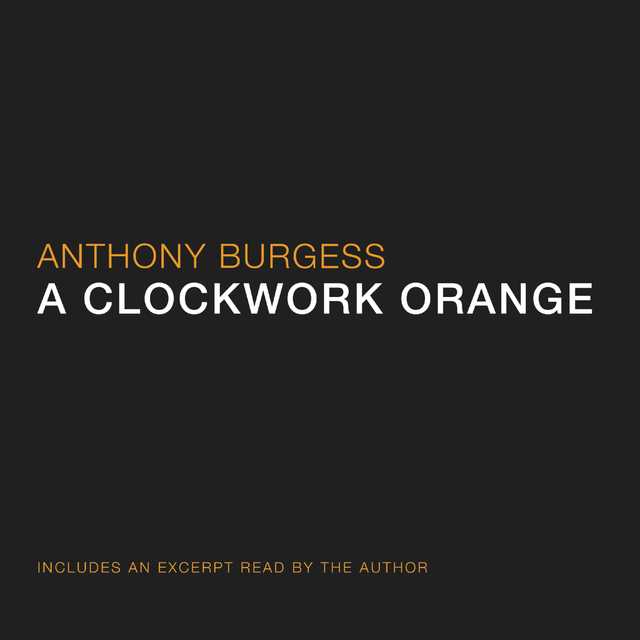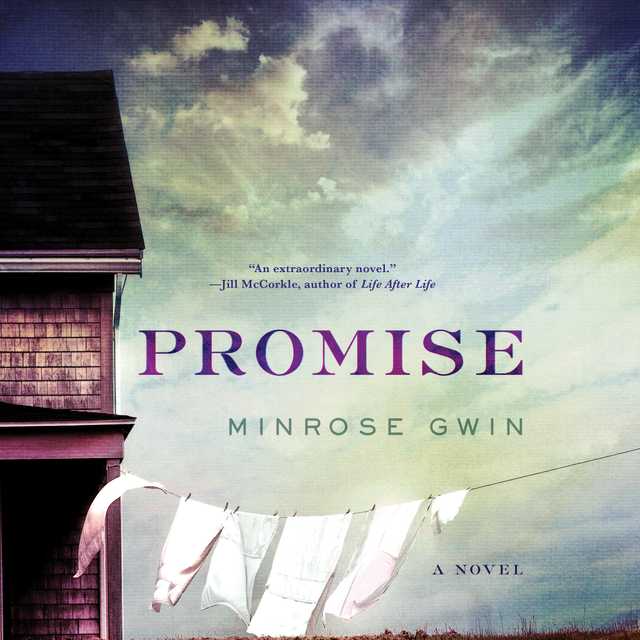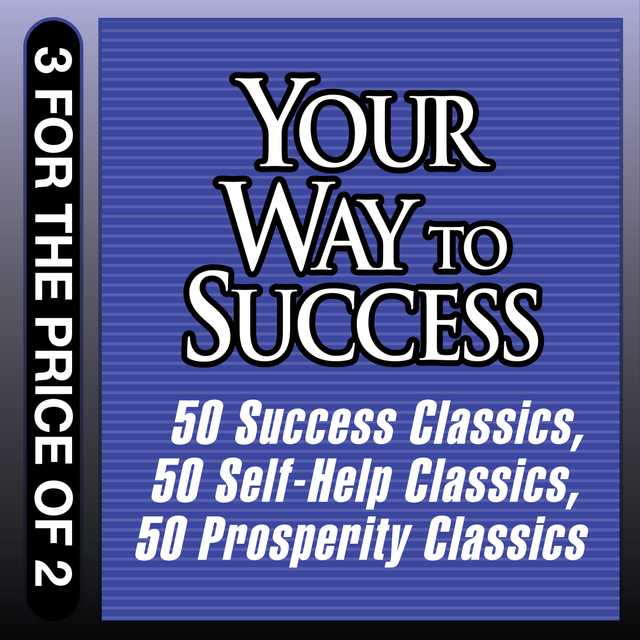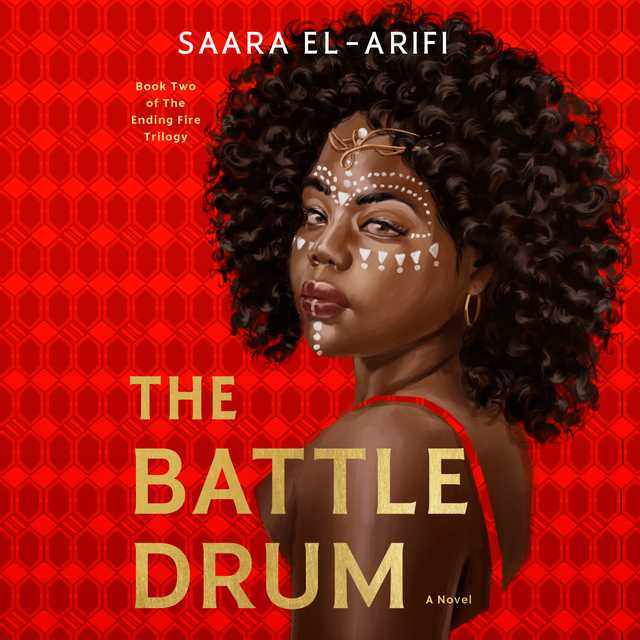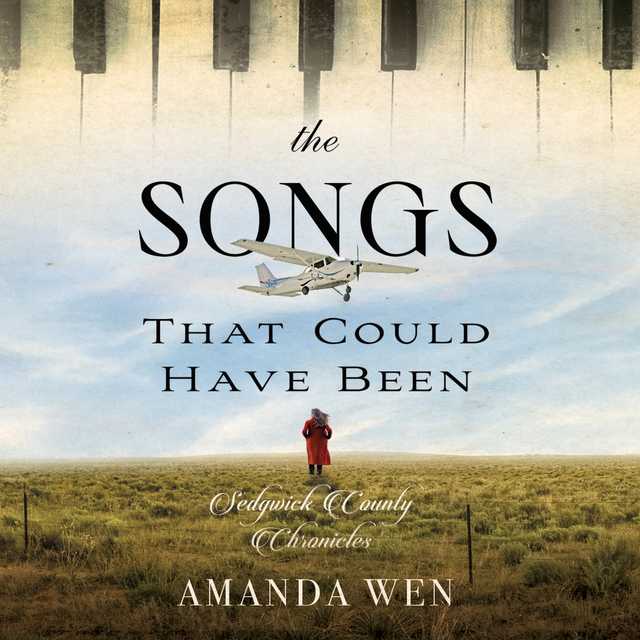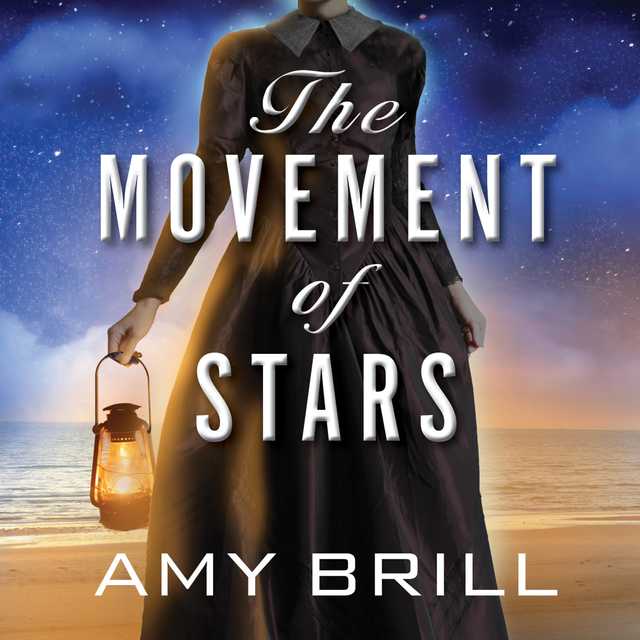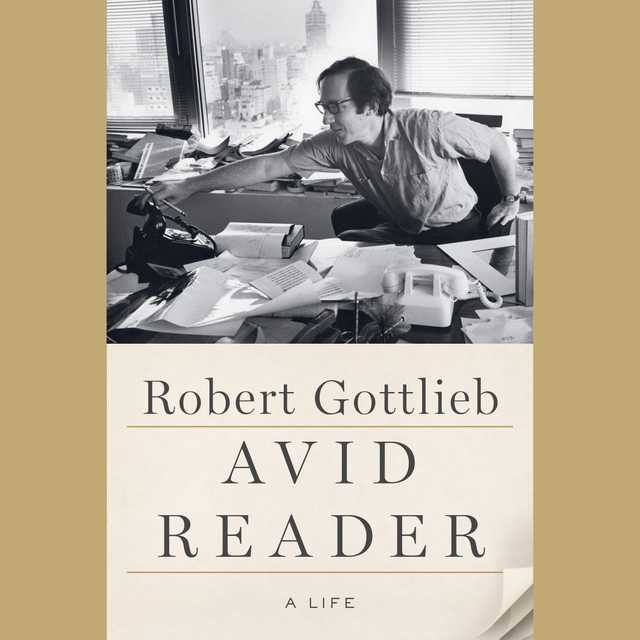A Clockwork Orange Audiobook Summary
A vicious fifteen-year-old droog is the central character of this 1963 classic. In Anthony Burgess’s nightmare vision of the future, where the criminals take over after dark, the story is told by the central character, Alex, who talks in a brutal invented slang that brilliantly renders his and his friends’ social pathology. A Clockwork Orange is a frightening fable about good and evil, and the meaning of human freedom. And when the state undertakes to reform Alex to “redeem” him, the novel asks, “At what cost?”
This edition includes the controversial last chapter not published in the first edition and Burgess’s introduction “A Clockwork Orange Resucked.”
Other Top Audiobooks
A Clockwork Orange Audiobook Narrator
Tom Hollander is the narrator of A Clockwork Orange audiobook that was written by Anthony Burgess
Tom Hollander has starred in such films as Gosford Park, Pride and Prejudice, Possession, Pirates of the Caribbean 2 and 3, as well as on Broadway and the West End.
About the Author(s) of A Clockwork Orange
Anthony Burgess is the author of A Clockwork Orange
More From the Same
- Publisher : HarperAudio
- Abraham
- American Gods [TV Tie-In]
- Dead Ringer
- House of Sand and Fog
- Prey
A Clockwork Orange Full Details
| Narrator | Tom Hollander |
| Length | 7 hours 42 minutes |
| Author | Anthony Burgess |
| Publisher | HarperAudio |
| Release date | June 12, 2007 |
| ISBN | 9780061450877 |
Additional info
The publisher of the A Clockwork Orange is HarperAudio. The imprint is HarperAudio. It is supplied by HarperAudio. The ISBN-13 is 9780061450877.
Global Availability
This book is only available in the United States.
Goodreads Reviews
Martine
March 22, 2008
A Clockwork Orange is one of those books which everyone has heard of but which few people have actually read –- mostly, I think, because it is preceded by a reputation of shocking ultra-violence. I’m not going to deny here that the book contains violence. It features lengthy descriptions of heinous crimes, and they’re vivid descriptions, full of excitement. (Burgess later wrote in his autobiography: ‘I was sickened by my own excitement at setting it down.’) Yet it does not glorify violence, nor is it a book about violence per se. Rather it’s an exploration of the morality of free will. Of whether it is better to choose to be bad than to be conditioned to be good. Of alienation and how to deal with the excesses to which such alienation may lead. And ultimately, of one man’s decision to say goodbye to all that. (At least in the UK version. The American version, on which Stanley Kubrick’s film adaptation was based, ends on a less optimistic note.) In short, it’s a novella of ideas which just happens to contain a fair bit of violence.It is also quite an artistic and linguistic achievement. Those who have seen the film will know that Alex (the anti-hero) and his droogs (friends) speak a made-up language full of Russian loanwords, Shakespearean and Biblical influences and Cockney rhyming slang. Initially this nadsat language was nearly incomprehensible to me, and my first response to it was bad. I found myself cursing Burgess, telling him that it wasn’t fair to put his readers through something like that. (If I want to read an incomprehensible book, I’ll read Finnegans Wake, thank you very much.) However, Burgess takes great care to introduce his new words in an understandable way, so after a few pages I got the hang of the nadsat lingo, and after a few more pages I actually began to enjoy it, because I’m enough of a linguist to go in for that sort of thing. I found myself loving the Russian loanwords, rejoicing when I recognised a German loanword among them and enjoying the Shakespearean quality of Alex’ dialogues. I finished the book with an urgent wish to learn Russian and read more Shakespeare. I doubt many readers will respond to the book in that way (not everyone shares my enthusiasm for languages and classical stuff), but my point is: you’ll get used to the lingo, and at some point you’ll begin to admire it, because for one thing, Burgess is awfully consistent about it, and for another, it just sounds so damned good. I mean, if you’re going to come up with a new word for ‘crazy’, you might as well choose bezoomny, right? Because it actually sounds mad. Doesn’t it?Anyhow, there’s more to A Clockwork Orange than just philosophical ideas and linguistic pyrotechnics. The writing itself is unexpectedly lyrical, and not just when it deals with violence. Some of the most beautiful passages in the book deal with music. More specifically, classical music, because for all his wicked ways, Alex has a passion for classical music. He particularly adores Beethoven, an adoration I happen to share. I came away from the book thinking I might consent to becoming Alex’ devotchka (woman, wife) simply because he is capable of getting carried away by Beethoven’s Ninth and hates having it spoilt for him. He’s cultured, is Alex, and while his culturedness obviously does not equal civilisation and goodness (a point he himself is quick to make), it does put him a notch above the average hooligan. It’s the apparent dichotomy between Alex’ tastes in art and his taste for violence which makes him such an interesting protagonist and which keeps you following his exploits to their not entirely believable (but good) conclusion.In short, then, A Clockwork Orange is an excellent book –- a bit challenging at first, but gripping and interesting and full of style and ideas. Not many books can claim as much.
Paul
May 16, 2010
In 1960 Anthony Burgess was 43 and had written 4 novels and had a proper job teaching in the British Colonial Service in Malaya and Brunei. Then he had a collapse and the story gets complicated. But I like the first cool version AB told, which was that he was diagnosed with an inoperable brain tumour and given a year to live. Since as you know he lived a further 33 years, we may conclude the doctors were not entirely correct. However - the doctor tells you you have a year to live - what do you do?* Lapse into a major depression? Get drunk and stay drunk? Buy a Harley davidson? Not if you were Anthony Burgess. Uxorious regard for his wife's future security bade him to place his arse on a chair in the unpleasing English seaside town of Hove and type out five and a half novels in the one year left to him, which, he later pointed out, was approximately equivalent to E M Forster's entire lifetime output. And the last of these five completed novels was A Clockwork Orange. No mean feat.So, this little novel should be on everyone who hasn't read it's must read list. It's a real hoot, and it's absolutely eerie in its predictions about youth culture and recreational drug use. It's also very famous for its hilarious language, all those malenky droogs, horrorshow devotchkas and gullivers and lashings of the old in-out in-out - the reader must be warned that it's very catching and you will for sure begin boring all your friends and family about tolchocking the millicents and creeching on your platties and suchlike. They'll give you frosty looks and begin avoiding you at the breakfast table, but you won't be able to help it. In extreme cases they might smeck your grazhny yarbles and that will definately shut you up.* Reminds me of the old joke where the doctor says to the guy "I'm sorry to say you only have three minutes to live." Guy says "Isn't there anything you can do for me?" Doctor says "I could boil you an egg."
Ahmad
August 09, 2021
(Book 437 from 1001 books) - A Clockwork Orange – Anthony BurgessA Clockwork Orange is a dystopian novel by English writer Anthony Burgess, published in 1962. Set in a near future English society featuring a subculture of extreme youth violence, the teenage protagonist, Alex, narrates his violent exploits and his experiences with state authorities intent on reforming him. The book is partially written in a Russian-influenced argot called "Nadsat". Part 1: Alex's world Alex is a 15-year-old living in a near-future dystopian city who leads his gang on a night of opportunistic, random "ultra-violence". Alex's friends ("droogs" in the novel's Anglo-Russian slang, "Nadsat") are Dim, a slow-witted bruiser, who is the gang's muscle; Georgie, an ambitious second-in-command; and Pete, who mostly plays along as the droogs indulge their taste for ultra-violence. Characterised as a sociopath and hardened juvenile delinquent, Alex is also intelligent, quick-witted, and enjoys classical music; he is particularly fond of Beethoven, whom he calls "Lovely Ludwig Van". ...Part 2: The Ludovico Technique Alex is convicted of murder and sentenced to 14 years in Wandsworth Prison. His parents visit one day to inform him that Georgie has been killed in a botched robbery. Two years into his term, he has obtained a job in one of the prison chapels, playing music on the stereo to accompany the Sunday Christian services. The chaplain mistakes Alex's Bible studies for stirrings of faith; in reality, Alex is only reading Scripture for the violent or sexual passages. ...Part 3: After prison Alex returns to his parents' flat, only to find that they are letting his room to a lodger. Now homeless, he wanders the streets and enters a public library, hoping to learn of a painless method for committing suicide. The old scholar whom Alex had assaulted in Part 1 finds him and beats him, with the help of several friends. Two policemen come to Alex's rescue, but they turn out to be Dim and Billyboy, a former rival gang leader. They take Alex outside of town, brutalise him, and abandon him there. ...تاریخ نخستین خوانش: روز یازدهم ماه اکتبر سال 2002 میلادیعنوان: پرتقال کوکی؛ نوشته: آنتونی برجس؛ مترجم: پریرخ هاشمی؛ مشخصات نشر تهران، تمندر، 1381، در 211ص، شابک 9649040633؛ موضوع: داستانهای نویسندگان بریتانیا - سده 20معنوان: پرتقال کوکی؛ نوشته: آنتونی برجس؛ مترجم: بهنام باقری؛ مشخصات نشر تهران، میلکان، 1394، در 180ص، شابک 9786007845264؛ عنوان: پرتقال کوکی؛ نویسنده و اقتباس استنلی کوبریک؛ مترجم: محمدمهدی فیاضی کیا؛ مشخصات نشر تهران، افراز، 1389، در 135 ص، شابک 9649789642432257؛ رمانی درباره ی نافرمانی گروهکی از جوانان در برابر قانون و جامعه، در آینده ی کابوسوار است؛ «الکس»، یک نوجوان پانزده ساله، داستان خود را به گویش ابداعی به نام «ندست» بازگو میکند، «استنلی کوبریک» از همین کتاب، فیلمنامه ای با همین عنوان برگرفته، و بنگاشته اند، پس همین عنوان فارسی از آنِ، آن فیلمنامه، و همان اقتباس نیز هست، فیلمنامه ی «استنلی کوبریک» با ترجمه جناب آقای «محمدمهدی فیاضی کیا»، را نشر افراز، در سال 1389هجری خورشیدی منتشر کرده، جناب «فربد آذسن» هم همین کتاب را در 172ص ترجمه کرده اند؛پرتقال کوکی کمدی سیاه هجوآمیز پادآرمانشهری، از «آنتونی برجس» نویسنده ی اهل «بریتانیا» است، که نخستین بار در سال 1962میلادی منتشر شد؛ داستان در آیندهای نزدیک رخ میدهد، در زمانه ای که خرده فرهنگ خشونت در میان نسل جوان جامعه رواج دارد؛ «الکس»، قهرمان نوجوان داستان، رفتارهای خشن خود را روایت میکند؛ تفریح او و داستانش آزار فیزیکی و جنسی شهروندان بیگناه است؛ طی یکی از این ماجراها، «الکس» دستگیر و به زندان میافتد؛ دولت مدعی است روش نوینی برای اصلاح مجرمان یافته که میتواند جایگزین زندان شود؛ «الکس» داوطلبانه تن به درمان میدهد اما درمییابد که آن روش چیزی کمتر از شکنجه و خشونت دولتی نیست؛ کتاب تا حدی به زبان مخفی «آرگو» به نام «ندست» نگاشته شده که متأثر از زبان «روسیه» است؛ تاریخ بهنگام رسانی 08/06/1399هجری خورشیدی؛ 17/05/1400هجری خورشیدی؛ ا. شربیانی
Mario the lone bookwolf
April 26, 2020
A classic, probably a bit overrated book and one of the rare cases in which I would say that the movie is better than the book. The most unnecessary thing was to add an extra chapter at the end that took the flow, logic, and atmosphere out of the whole thing. Nice development of an own language, but also not as cool as other examples. The whole dystopic brainwashing idea is one of the best elements. It reminds me of many overrated classics that form 3 stages or categories of boredom. Books that for no understandable reason have to be read in school, depending on the countries culture, and are mainly focused on the bad, outdated, old, very long time dead, writers of each country, so that there are individual purgatories for young readers in each state. Nobel price, nothing to add, the same with peace and economics, it´s just a bad joke. Clockwork Orange is in the third category: Books that use complex, not absolutely logical or even not for the author understandable, instable plots and inconsistent ideas to be progressive, provocative, and sell more by activating the bite reflexes of conservatives, bigots, and philistines and give nothing on the thousands of years old conventions of writing for the pleasure of the reader. I´ve read much of all 3 categories and must say that it´s the same as with modern art: If there is no recognizable concept, many others could do the same, and if it´s not universally acclaimed a masterpiece, it´s probably average or completely inexplicably overhyped trash. Clockwork Orange is one of the better ones, but it would be nothing without Kubricks´ adaption, and looking at the general ratings and popularity of all of Burgess´ other works, one can see the picture of a one hit wonder.Tropes show how literature is conceptualized and created and which mixture of elements makes works and genres unique: https://tvtropes.org/pmwiki/pmwiki.ph...
Henry
February 05, 2023
In the near future in an Utopian socialist country, England where everyone has to work ( except the ill or old) whether the job makes any sense or not, a group of teenagers like to party without limits at night. Alex the leader, George 2nd in command, Pete the most sane and the big dim Dim, he's good with his boots, fun loving kids. Your humble narrator Alex, will tell this story my brothers ...First they see an ancient man leaving the library carrying books, very suspicious nobody goes there now, inspecting these filthy things and ripping them to pieces, not forgetting a few punches on the offender to stop this evil habit, next entering a shop and borrowing some needed money, the owner and wife have to be persuaded with just a little force for this honor, then teaching a scummy drunk in the street the evil of his ways, pounding some sense into his addled brain. Meeting old friends Billyboy and company, in a dark alley, they exchange love taps but boys sometimes play too hard, drops of blood fall lovingly to the ground. When so many noisy sirens go off these peaceful youths, leave this unhealthy place. Getting tired of walking the gang goes on a joy ride, after spotting the empty car not being used! The friends decide to travel to the countryside, leaving dirty London behind for fresh air, the beauty of the land, the woods, tiny critters to watch and the slow ones on the road to be put out of their misery with a merciful crunch. Viewing a mailbox with the name of Home on it how delightful, this cottage's welcoming couple lets the group in for a spot of tea, they're wearing masks to enliven the carnival atmosphere, even though the man is a creepy writer... ugh. Would you read something called A Clockwork Orange? What a silly title for the good of the world, these pages are scattered everywhere, flying high to the ceiling and floating down below to be properly trashed on the floor by the good doers. Exchanging warm greetings with the wife, Alex your humble narrator my brothers and associates, go back to the city it's getting late, school tomorrow... ultra- violent fun must end ... His frightened parents don't ask too many questions at his small , but dumpy apartment a place they share. His room full of records of classical music, Ludwig Van a favorite to inspire him, which he plays very loud and his parents don't dare to complain anymore. Later Alex is sent to prisoner for a long term murder they say, framed what rot, he is 15. His cell he shares with five other men, nasty criminals all unlike Alex, one will have to sleep on the floor, his fists will not let him be the one ...Doctors Branom and Brodsky ignorant fellows they don't understand his slang, have a new technique to cure his violent behavior, as some people call it two weeks and a free man, let the torture begin...A magnificent fable of what might be...
Jonathan
November 12, 2016
This book was sweet. The way russian was used to show the distopian future was one of the coolest literary devices I have seen. Because I was so enthralled by it, I often read parts more than once to make sure I was getting the meaning right. Everyone should read this book, and then read it again to make sure they got it.
Gabrielle
March 09, 2017
I once had a truly lovely roommate. In my mind, I now think of her as the Yoga Bunny: yes, because she was a yoga instructor, but also because she was the kind of adorable hippy who wants to believe that deep down, everyone is nice and that if you love one another enough, the world’s problems will eventually solve themselves. She was kind, generous and polite to a fault and I do not mean to make fun of her: I really love her very much, but her world view always seemed terribly naïve and somewhat delusional to me. I may be a cynic, but it really struck me like a ton of bricks one evening, when she was looking at my bookcase after asking if she could borrow something to read. She pulled “A Clockwork Orange” off the shelf and asked me what it was about.“It’s a futuristic dystopian tale about whether it’s better to have the free will to be a bad person or to be forced to be a good person” I replied after a moment’s pause. It was really the best way I could think of summarizing Burgess’ novella.“Why would anyone want to write… or read anything so horrible?!” she cried, her big eyes suddenly filled with tears. She put the book back on the shelf, grabbed my copy of “Eat, Pray and Love” and promptly retreated to her room to read, and presumably to scrub her ears clean of the terribly offensive idea I had just uttered.Again, I don’t want to make fun of Yoga Bunny. Her wildly optimistic worldview made the entire idea of Burgess’ masterpiece disgusting. She couldn’t see why people would choose to be bad, hurtful and violent. I did not bother trying to explain that the concept of free will is about much more than just the violent acts committed by the anti-hero Alex: we use free will every day and the point of the book is to get us to think about what it would mean if that capacity to choose was taken away.And I must say, it is not as violent as some people make it sound: most horror novels contain much more disgusting violence than what is in the pages of this book. And furthermore, Burgess never condones any of the acts committed by Alex and his droogs. That being said, few horror novels manage to be as disturbing as this tiny novella; not because of the violence, but because of the ideas.Some spoilers ahead.Alex is clearly a sociopath, who doesn’t feel anything about other people. Their pain, their suffering, their feelings, none of that matters to him. He wants his thrills, whether those are sexual or from getting into a good fight. The Ludovico Technique gives him physical pain when he tries to act on his violent urges, but it doesn’t take his urges away. He still wants to hurt and rape, even if he can’t. Because goodness cannot be imposed on anyone, it always remains a choice. Conditioning him would never “fix” him: therapy and education might, but that’s not the method he is subjected to. Because ultimately, Dr. Brodsky doesn’t care about Alex any more than Alex cared about his victims. He wants to cut down crime, not make people better.When Alex is freed again, attacked and incapable of defending himself, some readers would probably cheer because he finally gets what he deserves. But I see a more subtle point being made. The point that sometimes, one has to do things that would, under other circumstances, be considered “bad”, for good reasons. Hitting someone is bad; but hitting someone to defend yourself because someone is trying to hurt or kill you isn’t.When it was originally published in the United-States, the final chapter, where Alex outgrows his sociopathy and becomes “normal”, was removed to give the book a darker tone and ending. Kubrick used that version for his brilliant adaptation (which I watch at least once a year – it’s one of my all-time favorite movies), which concludes with the realization Ludovico Technique has stopped affecting Alex: his favorite music and thoughts of violence no longer hurt him and he is… “cured”. I find both endings equally fascinating. In either case he is cured, but what exactly is he cured of? I love this ambiguity. The book’s original ending suggests that there is a possibility of redemption for everyone (see Yoga Bunny, there are some optimistic passages in this book!), it hints that maturity will eventually smooth out people’s character. I don’t know how much I believe that… but I get the point.The linguistic tour de force accomplished by Burgess – while irritating at first, until your brain begins to recognize the patterns and cadence – is impressive enough to make it worth the read, regardless of how you feel about the moral dilemma contained within the pages. Russian, Shakespearean turns of phrase and Cockney slang actually blend beautifully, and the Nadsat words are used perfunctorily enough that when you read a sentence in context, you can quickly figure out what every word means. The first 10 pages will be a struggle, and that is why in this specific case, I’d recommend watching the movie before reading the book, just to get familiar with the language. But once you get past the Nadsat hurdle, so to speak, you start understanding the genius of its use: it gives such a rich texture to the text, it puts words on images and feelings that are impossible to associate to a regular English word. “A Clockwork Orange” is disturbing, gorgeous and horrible all at once. It scares me but I also enjoy it very much. I really think it’s worth the read, unpleasant as it may be at times. And obviously, I also strongly recommend the wonderful Kubrick movie. The music and sets are haunting, and I will always picture Alex as Malcolm McDowell. I’d love to watch it with Yoga Bunny someday, and hopefully seeing this terrible person get tortured in the name of “goodness” will help her think about free will a bit differently.
J.L.
May 21, 2018
Anthony Burgess’s A Clockwork Orange is a fantastic, thought-provoking and immersive read! Don’t be put off by the invented slang. It comes very easily once you begin reading, and adds to the experience. Besides recommending this book, I do have a final thought concerning chapter 21, the chapter which was left out of the published American edition of the novel as well as the iconic film by Stanley Kubrick. I understand Burgess’s desire to show change in his young anti-hero, Alex; however, the transformation in this final chapter defies believability. It’s not that dramatic change is impossible. Rather, forcing this to happen in one chapter cheapens it and makes it feel like an afterthought. It also falls flat. Otherwise, though, I found A Clockwork Orange an incredibly well-crafted and engaging story. 4.5 Stars.
Jon
November 01, 2022
One of my favorite books of all time...but be warned that the ending is different than the ending of Stanley Kubrick's movie (also a classic). Truth be told I prefer the movie ending...but the overall message is the same: when a generation of vipers slithers free who provided the nest they were spawned in? To me this book is the perfect example of how the SA (Sturmabteilung) probably formed: groups of disassociated young men forming 'packs' to roam the city.
Fernando
January 03, 2023
-¿Y ahora qué pasa, eh?Estábamos yo, Alex y mis tres drugos, Pete, Georgie y el Lerdo sentados en el bar lácteo Korova exprimiéndonos los rasudoques y decidiendo qué podríamos hacer esa noche, en un invierno oscuro, helado y bastardo aunque seco."El 2017 ha sido el año que dediqué en parte a leer varios clásicos y novelas contemporáneas que me faltaban, como “El guardián entre el centeno” de J.D. Salinger, “Robinson Crusoe” de Daniel Defoe, “El inspector” de Nikólai Gógol, “Crónica del pájaro que da cuerda al mundo” de Haruki Murakami, “La caída” de Albert Camus, “Resurrección” de Lev Tolstói, “Los viajes de Gulliver” de Jonathan Swift, “La piedra lunar” de Wilkie Collins y muy especialmente “Don Quijote de la Mancha” de Miguel de Cervantes y el “Finnegans Wake” de James Joyce. Ahora agrego esta icónica novela de Anthony Burgess.Debo confesar que me ha gustado mucho leerla. Ha sido un interesante viaje el de Alex por su agitados días de adolescencia. Me imagino lo que debe haber sido leer “La naranja mecánica” en 1962, un libro que anticipó el mundo violento de hoy en el 2017, de la explosión del punk nihilista que generaron bandas como “Sex Pistols” o “The Clash” en 1977 y toda la debacle de clases sociales que se vivió en Argentina a partir de finales de la década del ’70.Es que la estrella del libro no es Alex ni las andanzas con sus amigos ni el sistema contra el que quieren luchar. Es la violencia. Esa violencia que es parte inherente de todos los seres humanos, de la eterna lucha entre el bien y el mal, de los valores trastocados, perdidos, rechazados y también de aquellos individuos que no encajan en la sociedad, que son marginales, tal vez sin proponérselo y de cómo el sistema (llámese gobierno, sistema de educación o aparato jurídico) trata de convertir lo malo en bueno fallando en gran medida por no entender nunca el asunto.Pero la violencia alcanza no sólo a Alex, sino a todos los órdenes sociales y a toda escala. A sus amigos, que lo secundan en sus fechorías, a sus padres que no lo comprenden y terminan enemistándose con él, a los directivos de ese “Centro de recuperación” bastante dudoso y clandestino en el que cae y en donde desde el Estado pretenden recuperarlo y supuestamente transformarlo en un ciudadano reformado con el propósito de reinsertarlo en la sociedad. Claro que los métodos utilizados son tan violentos como los hábitos o naturaleza de Alex y los resultados llegan a ser desastrosos. El aparato de estado quiere arreglar a un individuo que según ellos está descarriado de la manera más inadecuada y cruel. Es como combatir fuego con fuego.Los capítulos en donde le proyectan las famosas películas y en el que él describe todas las palizas que le propinan, desde que lo detiene la policía y durante su paso por la cárcel me recuerda a las que sufre Winston, el personaje principal de “1984”, la mítica novela de George Orwell.Todo está impregnado de violencia. Los medios periodísticos y el accionar oportunista de ciertos políticos, que intentan utilizarlo como ejemplo para derrocar al gobierno. Todos quieren sacar rédito de Alex. Es más, las víctimas de sus ataques anteriores intentarán aplicar la misma violencia que recibieron, como buscando reparar lo que ya no pueden.Hay que destacar la manera en la que Alex (Burgess) narra lo que sucede en esta historia, pero lo que más asombra es la pasmosa naturalidad con la que describe los distintos actos de vandalismo, caos y destrucción en las calles de una semi distópica Inglaterra, donde este personaje tan especial se divierte a sus anchas con sus amigos. Están fuera de la ley, asaltan, roban, golpean, violan y matan y todo eso está dentro de la normalidad que viven; luego vuelven a sus casas e intentan hacer una vida normal.En el caso de Alex es por demás paradójico, puesto que su pasión es la música clásica. Escucha a su querido Ludwig van Beethoven o a Mozart o Bach. Esa música inmortal es su cable a tierra, conexión con el mundo real, aunque es lógico que algo no está bien. Podemos entender el estado de efervescencia que los años de adolescente producen en las personas pero en el caso de Alex eso va mucho más allá.Él es uno de esos personajes tan especiales en la literatura. Personajes que no encajan en ningún molde. Se puede citar algunos: Holden Cauldfield en “El guardián entre el centeno”, Mersault de “El extranjero” o Ignatius Reilly en “La conjura de los necios”. En Argentina podríamos incluir dos de Ernesto Sábato: Fernando Vidal Olmos, ese oscuro y lunático personaje de “Informe sobre ciegos” o Juan Pablo Castel, el asesino dostoievskiano de la novela “El túnel”.Esta novela choca también al lector desde el plano lingüístico, dado que Burgess crea el famoso vocabulario adolescente “nadsat”, una jerga o lunfardo en el que Alex y sus amigos reemplazas determinadas palabras o acciones por términos tomados del idioma ruso y aggiornados a su lenguaje. De esta manera, por dar algunos de ejemplos, "golová" significa cabeza, "tolchoco", golpe, "litso" significa rostro y así sucesivamente para muchas otras palabras más.Confieso que al principio me costó un poco de esfuerzo retener todos estos términos (parecía un dejá-vú del Finnegans Wake cuando comencé a leer las primeras páginas), pero una vez que uno se acostumbra al vocabulario, la lectura se torna muy fluida. Desde el punto de vista del lenguaje es más que interesante, puesto que significa un desafío para el traductor llevar estos términos a su propio idioma.Para aquellos que aún no hayan leído esta novela, vaya una pequeña muestra de cómo es el lenguaje nadsat: "Tienes que comprender el tolchoco en la rota, Lerdo. Era la música. Me pongo besuño cuando un veco interfiere en el canto de una ptitsa. Ya entiendes."Cambiando los términos nadsat, la frase quedaría así: "Tienes que comprender el golpe en la boca, Lerdo. Era la música. Me pongo loco cuando un tipo interfiere en el canto de una chica. Ya entiendes."En el prólogo del libro y bajo recomendación de un lector de goodreads al cual le agradezco, porque dice que hay que leerlo al final ya que sin quererlo, Burgess genera el spoiler, el autor se queja en cierta medida en cómo le cambió cierto sentido a la lectura del libro en todo aquel que haya visto primero la película de Stanley Kubrick. Burgess nunca estuvo muy de acuerdo con eso, ya que él sostiene que escribió la novela dividiéndola exactamente en tres partes de 7 capítulos cada uno, o sea 21 (y explica que el sentido era que la suma diera 21, puesto que ese número corresponde a la mayoría de edad), pero los editores de la versión norteamericana, quitaron ese último capítulo ya que ese final es totalmente opuesto al del capítulo 6 de la edición británica.Aquí entramos en el gusto de cada lector, puesto que a unos les agradará más la primera forma y otros elegirán la segunda opción, la del famoso capítulo 21. Burgess escribió y eligió el suyo y le sobran los motivos para dicha elección. Kubrick, como era de esperar, termina la película exactamente igual a la versión americana. Yo me quedo con el capítulo 21, el de la edición original, entonces, cuando comencemos a discutir acerca de cuál es el mejor final, parodiaremos la primera frase de esta novela:"Y ahora qué pasa, ¿eh?"
MJ
October 18, 2012
A favourite of my late teens, still a favourite now. The brutality of male blooming and the private patois of our teenhood . . . splattered across this brilliant moral satire, abundant in vibrant, bursting language and a structural perfection: Shakespearean, dammit. Goddamn Shakespearean! nadsat is second only to the language in Riddley Walker for a perfectly rendered invented language that is consistent within the novel’s own internal logic. This book is musical! This book sings, swings, cries and rages! Oh this book, this book! My first encounter with unbridled creativity, intelligence, elegance, thematic unity, this book made me weep for the future of poor sadistic Alex. Oh, he must grow up, he must! But he doesn’t Oh Humble Skimmer, he doesn’t! His nadsat is in place up until his story ends, and all that cal, so Alex remains a perpetual teen, like the boring little shit in Salinger’s unambitious literary haemorrhage (I forget the title). This book, this book! Oh my droogies, oh my Bog . . . nothing hurts so much on your stomachs and your heads and your hearts as this book . . . except maybe having Earthly Powers dropped on your tootsies . . . !!! [collapse into gibberish] !!!
Matthew
September 28, 2013
This book was real horrorshow, O my brothers. I suggest that all vecks should viddy it if they have a chance.
Mark
January 11, 2023
I read this a great deal of time ago. Before a fair number of those reading this review were born. And the book itself was written before I was born - though not by very many years.The intervening decades mean that this will be a somewhat vague accounting of the book's merits (in my eyes). It certainly made an impression on me, and the main character, Alex DeLarge, was the inspiration (at least in terms of a number of traits) for the main character in my debut novel, Prince of Thorns - both Alex and Jorg are very young, amoral, violent, and possessed of a certain degree of charm and intelligence. A Clockwork Orange is, in my estimation, an observation (rather than study) of a phenomenon that is complicated in someways and simple in others, and mispresented in a whole variety of manners by two-dimensional takes on it. Namely the nature of teenage rebellion (at the sharpest end where it shades into what we would commonly call 'evil') and how society interacts with it, seeking both to curb and cure it, and looks at that interaction both in terms of the damage wrought (in this case violent attacks including rape), the punitive measures taken (prison), the 'treatment' (in this futuristic world (from a 1960s perspective) this comes through both religion and a rather harrowing aversion therapy), the politics, and the final outcome.The book's delivered in the first person through Alex's point of view with heavy doses of an invented street slang, an argot cobbled together with east European word IIRC. Alex is honest about his dishonesty, almost comical in his semi-tongue in cheek self-pity, and an engaging voice despite his many vile crimes.One of the book's most interesting (to me) conclusions - I'll call it a conclusion because it's the final note, rather than that it's delivered as a sermon - is that what mellows our Alex into someone who might eventually be a reasonable person and might live up to the promise of his obvious intelligence and verbal skills, is simply time. He grows up. He casts his wickedness as belonging to the half-child, half-man that he was. The attempts to punish him, cure him, and rehabilitate him weren't significant.And that's an interesting question at least - at what age does the stain of a person's deeds start to become permanent? We would probably not condemn a 40 year old man because when he was 2 he pushed his 1 year old brother into a fire to see what would happen. If we move that 40 down, and that 2 up ... where does it change. Is there an age at which Alex's crimes should not dog the rest of his life, and if so what is it?And by making his crimes so terrible, Burgess ups the stakes on that question. Join my Patreon Join my 3-emails-a-year newsletter #prizes..
Frequently asked questions
Listening to audiobooks not only easy, it is also very convenient. You can listen to audiobooks on almost every device. From your laptop to your smart phone or even a smart speaker like Apple HomePod or even Alexa. Here’s how you can get started listening to audiobooks.
- 1. Download your favorite audiobook app such as Speechify.
- 2. Sign up for an account.
- 3. Browse the library for the best audiobooks and select the first one for free
- 4. Download the audiobook file to your device
- 5. Open the Speechify audiobook app and select the audiobook you want to listen to.
- 6. Adjust the playback speed and other settings to your preference.
- 7. Press play and enjoy!
While you can listen to the bestsellers on almost any device, and preferences may vary, generally smart phones are offer the most convenience factor. You could be working out, grocery shopping, or even watching your dog in the dog park on a Saturday morning.
However, most audiobook apps work across multiple devices so you can pick up that riveting new Stephen King book you started at the dog park, back on your laptop when you get back home.
Speechify is one of the best apps for audiobooks. The pricing structure is the most competitive in the market and the app is easy to use. It features the best sellers and award winning authors. Listen to your favorite books or discover new ones and listen to real voice actors read to you. Getting started is easy, the first book is free.
Research showcasing the brain health benefits of reading on a regular basis is wide-ranging and undeniable. However, research comparing the benefits of reading vs listening is much more sparse. According to professor of psychology and author Dr. Kristen Willeumier, though, there is good reason to believe that the reading experience provided by audiobooks offers many of the same brain benefits as reading a physical book.
Audiobooks are recordings of books that are read aloud by a professional voice actor. The recordings are typically available for purchase and download in digital formats such as MP3, WMA, or AAC. They can also be streamed from online services like Speechify, Audible, AppleBooks, or Spotify.
You simply download the app onto your smart phone, create your account, and in Speechify, you can choose your first book, from our vast library of best-sellers and classics, to read for free.
Audiobooks, like real books can add up over time. Here’s where you can listen to audiobooks for free. Speechify let’s you read your first best seller for free. Apart from that, we have a vast selection of free audiobooks that you can enjoy. Get the same rich experience no matter if the book was free or not.
It depends. Yes, there are free audiobooks and paid audiobooks. Speechify offers a blend of both!
It varies. The easiest way depends on a few things. The app and service you use, which device, and platform. Speechify is the easiest way to listen to audiobooks. Downloading the app is quick. It is not a large app and does not eat up space on your iPhone or Android device.
Listening to audiobooks on your smart phone, with Speechify, is the easiest way to listen to audiobooks.

